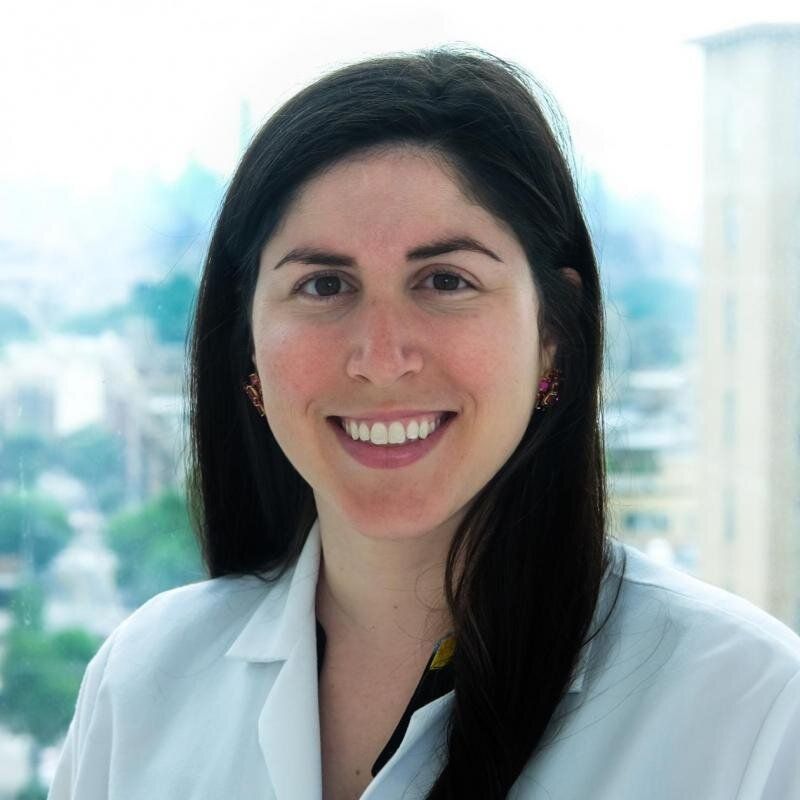Ersilia DeFilippis, MD: Need for Equity, Policy Change in Heart Failure Transplant
Ersilia DeFillipis, MD, discusses a trio of studies she presented at ACC.24 examining different financial hurdles and barriers encountered by people in need of heart transplants.
Ersilia DeFilippis, MD
Credit: Columbia University

Although the American College of Cardiology (ACC) Annual Scientific Session serves as a showcase for the latest advancements in cardiovascular medicine, it also offers an opportunity spotlight the need for advocacy and policy change as avenues for improving equity as well as quality of care.
At ACC.24, the heart failure community continued its ongoing rallying cries surrounding the need for uptake and administration of guideline directed medical therapy (GDMT), but also took time to bring attention toward inequities persisting in care as a result of policy and the systemic issues within the US healthcare system. Among those in the community seeking to call attention to both at the meeting was Ersilia DeFilippis, MD, an advanced heart failure and transplant cardiology as well as an assistant professor of Medicine at the Columbia University Irving Medical Center. At the meeting, DeFillippis participated as a moderator in a discussion on GDMT but also took aim at the need for change in the healthcare system and policy through a series of studies and presentations highlighting barriers to care in the current system.
Wallet Biopsy
Even after all the challenges inherent with a decline in function: financial security. Called a wallet biopsy, candidates will often need to have their financial resources assessed before receipt of an organ. A measure intended to adequate financial support to sustain the lifelong medical regimen required after receiving a new heart, has become a barrier for those most in need of equitable access to care.
Presented on April 06, 2024 and simultaneously published in the Journal of Cardiac Failure, DeFilippis and colleagues sought to better describe the financial burden of heart transplantation for people in the US through an analysis of crowdfunding for individuals being evaluated for heart transplantation. With this in mind, investigators performed a search of GoFundMe campaigns using the term “heart transplant”, which yielded 1000 results.1
Of these, 634 were included for analysis. Investigators noted most campaigns were hosted in support of White individuals (57.8%), males (63.1%), and adults (76.7%). Investigators also pointed out 40.8% of adult campaign beneficiaries were partnered, approximately half had children, and 44% were admitted to the hospital while fundraising.1
Analysis of these campaigns revealed 15% had not received any funds and the remaining campaigns had raised a median amount per day of $53.24 (interquartile range [IQR], 20.61, 153.97). The median fundraising goal for these campaigns was listed as $20,000 (IQR, 160.15, 50,000). At the time of review, 26% of beneficiaries had undergone transplant, 41.8% were listed for transplant, and 1.1% died while waiting for transplant.1
Post-Transplant Cost Simulation
In the same session as the previous study, DeFilippis presented a second study focused on the financial burden faced by patients with heart failure and their support network. This second study was launched with the intent of estimating the financial burden of paying for parking at the hospital for post-transplant care. With this in mind, investigators performed a survey of the 30 highest volume hearts transplant programs as identified through the Scientific Registry of Transplant Recipients as of October 2023.2
Once identified, investigators used institutional websites to identify hourly parking rates for patients and visitors as well as validated discounts when applicable. For the purpose of analysis, parking costs for the first year post-heart transplant were simulated based on the assumption of monthly 6-hour visits. The daily parking cost as a percentage of state minimum wage was also calculated as part of the analysis.2
Results of the study indicated just 2 of the 30 programs offered free parking to patients and visitors, with the average cost for parking for 6 hours at the remaining 28 programs calculated as $12.31 (range, 3 to 30). Annual cost estimates pointed to a mean of $147.70, ranging from $36 to $360 depending on the program. Although there was significant variation according to region, investigators found the hourly parking price represented 18% of the state minimum wage on average, reaching as high as 37% of the hourly minimum wage.2
Medicaid Coverage for Heart Transplantation
Presented on April 07, 2024, the final of DeFilippis 3 presentations addressing systemic inequities in care offered an overage of Medicaid coverage for heart transplantation in the US. Investigators identified Georgia, Montana, and Nevada as the only states that did not cover heart transplantation despite both Montana and Nevada being Medicaid expansion states. Upon analysis, investigators found these 3 states combined to have 2 heart transplant centers, with both located in Georgia and none within Montana or Nevada.3
Further analysis indicated the median annual household income in Georgia was $66,559 compared to $68,297 in all other states combined. Analysis of population demographics for those who meet the poverty level in Georgia revealed, 20% of individuals were Black, 20% were Hispanic, and 27% were American Indian/Alaskan Native. Among the non-elderly meeting these criteria, 26% of Medicaid constituents were Black, 24% were Hispanic, and 35% were American Indian/Alaskan Native.3
For more on these studies and efforts to address inequities in heart failure care and cardiovascular medicine, check out our interview with DeFilippis from the conference floor at ACC.24.
References:
- DeFilippis EM, Mehta A, Alkhunaizi FA, et al. The Wallet Biopsy: Medical Crowdfunding for Heart Transplantation. J Card Fail. Published online February 24, 2024. doi:10.1016/j.cardfail.2023.12.019
- DeFilippis EM, Donald E, Blumer V, et al. SHOULD OUR PATIENTS PAY FOR PARKING? A SIMULATION OF COSTS AFTER HEART TRANSPLANTATION. Presented at: American College of Cardiology (ACC.24) Annual Scientific Session. April 6 – 8, 2024. Atlanta, GA.
- DeFilippis EM, Lopez JL, Blumer V, et al. MEDICAID COVERAGE FOR HEART TRANSPLANTATION: THE ROLE OF STATE POLICIES IN IMPROVING ACCESS TO HEART TRANSPLANTATION. Presented at: American College of Cardiology (ACC.24) Annual Scientific Session. April 6 – 8, 2024. Atlanta, GA.